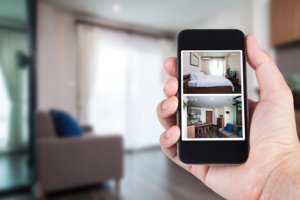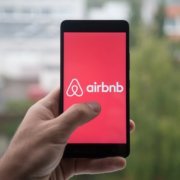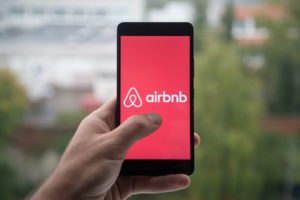 When it was founded in 2008, very few people could have envisaged how quickly and large Airbnb would grow. It is now home to 31 offices across the world. Airbnb has welcomed more than 400 million guests since its launch and has listings in a staggering 161 countries.
When it was founded in 2008, very few people could have envisaged how quickly and large Airbnb would grow. It is now home to 31 offices across the world. Airbnb has welcomed more than 400 million guests since its launch and has listings in a staggering 161 countries.
With growth can often come problems, the most recent is potentially one of the most worrying for would-be guests. That’s because there’s been an increasing number of reports of guests identifying and locating hidden cameras within Airbnb properties. While some of these have been hidden in common household appliances such as fire detectors; others have made their way into plant pots and television veneers.
Although such spy craft would be more commonly found in the pages of a James Bond novel, it does highlight a very real and significant problem for Airbnb and those using the platform to enjoy a break away; namely a very severe invasion of privacy.
So where does Airbnb stand on hidden cameras in their properties? And importantly where can UK holiday homeowners find guidance on the use of CCTV in UK holiday lets?
Airbnb’s stance on recording equipment and hidden cameras in properties
Airbnb indicates that it’s fine for a property owner to have cameras, or recording equipment and devices within the property. Stipulating as long as they’re highlighted to guests within the ‘House Rules’. Here’s their exact wording:
“If you’re a host and you have any type of surveillance device in or around a listing, even if it’s not turned on or hooked up, we require that you indicate its presence in your House Rules. We also require you to disclose if an active recording is taking place. If a host discloses the device after booking, Airbnb will allow the guest to cancel the reservation and receive a refund.”
So what’s the real issue?
The issue, as with many areas of Airbnb, is one of regulation and safeguarding. At the moment cases of hidden cameras and recording equipment are only being highlighted and brought to public attention by paying guests that are thorough enough and technically savvy enough to conduct a scan. They are not being identified by the platform itself. This issue then permeates into policing; if there are hundreds of thousands of transient and sometimes short term listings, how do you regulate and proactively police what’s inside the property without reliance on the paying guest?
The answer is that it’s incredibly difficult and, until that changes, the risks of hidden equipment within these properties may be a tricky problem to solve for one of the largest online property platforms in the world.
Please note it is illegal in the UK to use spy cameras in areas where subjects may have a reasonable expectation of privacy such as holiday homes.
- VisitBritain have produced useful guidance on the use of CCTV by accommodation providers which can be found here.
- For further information, download the Home Office Surveillance Camera Code Of Practice
Boshers offer specialist holiday home insurance to owners across the UK. Need an insurance quote for your holiday let? Give us a call on 01237 429444.



 The UK’s tourism sector has seen many changes over recent years, but perhaps none more significant than the emergence of the sharing economy.
The UK’s tourism sector has seen many changes over recent years, but perhaps none more significant than the emergence of the sharing economy.